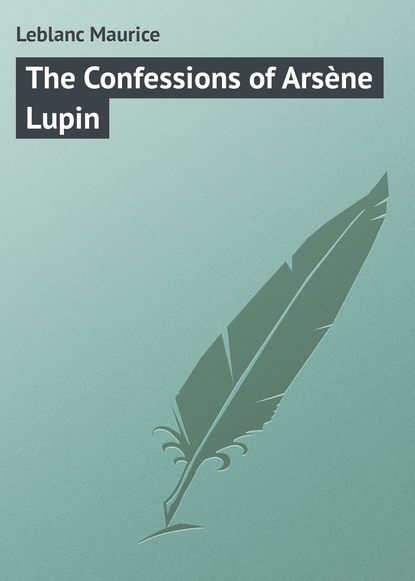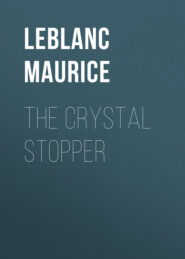По всем вопросам обращайтесь на: info@litportal.ru
(©) 2003-2024.
✖
The Confessions of Arsène Lupin
Настройки чтения
Размер шрифта
Высота строк
Поля
"He's been ill a fortnight … ever since the trouble with the baroness… He came home the next day with a temperature and took to his bed."
"But he gets up, surely?"
"Ah, that I can't say!"
"How do you mean, you can't say?"
"No, his doctor won't let any one into his room. He took my key from me."
"Who did?"
"The doctor. He comes and sees to his wants, two or three times a day. He left the house only twenty minutes ago … an old gentleman with a grey beard and spectacles… Walks quite bent… But where are you going sir?"
"I'm going up, show me the way," said Lupin, with his foot on the stairs. "It's the third floor, isn't it, on the left?"
"But I mustn't!" moaned the portress, running after him. "Besides, I haven't the key … the doctor…"
They climbed the three flights, one behind the other. On the landing, Lupin took a tool from his pocket and, disregarding the woman's protests, inserted it in the lock. The door yielded almost immediately. We went in.
At the back of a small dark room we saw a streak of light filtering through a door that had been left ajar. Lupin ran across the room and, on reaching the threshold, gave a cry:
"Too late! Oh, hang it all!"
The portress fell on her knees, as though fainting.
I entered the bedroom, in my turn, and saw a man lying half-dressed on the carpet, with his legs drawn up under him, his arms contorted and his face quite white, an emaciated, fleshless face, with the eyes still staring in terror and the mouth twisted into a hideous grin.
"He's dead," said Lupin, after a rapid examination.
"But why?" I exclaimed. "There's not a trace of blood!"
"Yes, yes, there is," replied Lupin, pointing to two or three drops that showed on the chest, through the open shirt. "Look, they must have taken him by the throat with one hand and pricked him to the heart with the other. I say, 'pricked,' because really the wound can't be seen. It suggests a hole made by a very long needle."
He looked on the floor, all round the corpse. There was nothing to attract his attention, except a little pocket-mirror, the little mirror with which M. Lavernoux had amused himself by making the sunbeams dance through space.
But, suddenly, as the portress was breaking into lamentations and calling for help, Lupin flung himself on her and shook her:
"Stop that!.. Listen to me … you can call out later… Listen to me and answer me. It is most important. M. Lavernoux had a friend living in this street, had he not? On the same side, to the right? An intimate friend?"
"Yes."
"A friend whom he used to meet at the café in the evening and with whom he exchanged the illustrated papers?"
"Yes."
"Was the friend an Englishman?"
"Yes."
"What's his name?"
"Mr. Hargrove."
"Where does he live?"
"At No. 92 in this street."
"One word more: had that old doctor been attending him long?"
"No. I did not know him. He came on the evening when M. Lavernoux was taken ill."
Without another word, Lupin dragged me away once more, ran down the stairs and, once in the street, turned to the right, which took us past my flat again. Four doors further, he stopped at No. 92, a small, low-storied house, of which the ground-floor was occupied by the proprietor of a dram-shop, who stood smoking in his doorway, next to the entrance-passage. Lupin asked if Mr. Hargrove was at home.
"Mr. Hargrove went out about half-an-hour ago," said the publican. "He seemed very much excited and took a taxi-cab, a thing he doesn't often do."
"And you don't know…"
"Where he was going? Well, there's no secret about it He shouted it loud enough! 'Prefecture of Police' is what he said to the driver…"
Lupin was himself just hailing a taxi, when he changed his mind; and I heard him mutter:
"What's the good? He's got too much start of us…"
He asked if any one called after Mr. Hargrove had gone.
"Yes, an old gentleman with a grey beard and spectacles. He went up to Mr. Hargrove's, rang the bell, and went away again."
"I am much obliged," said Lupin, touching his hat.
He walked away slowly without speaking to me, wearing a thoughtful air. There was no doubt that the problem struck him as very difficult, and that he saw none too clearly in the darkness through which he seemed to be moving with such certainty.
He himself, for that matter, confessed to me:
"These are cases that require much more intuition than reflection. But this one, I may tell you, is well worth taking pains about."
We had now reached the boulevards. Lupin entered a public reading-room and spent a long time consulting the last fortnight's newspapers. Now and again, he mumbled:
"Yes … yes … of course … it's only a guess, but it explains everything… Well, a guess that answers every question is not far from being the truth…"
It was now dark. We dined at a little restaurant and I noticed that Lupin's face became gradually more animated. His gestures were more decided. He recovered his spirits, his liveliness. When we left, during the walk which he made me take along the Boulevard Haussmann, towards Baron Repstein's house, he was the real Lupin of the great occasions, the Lupin who had made up his mind to go in and win.
We slackened our pace just short of the Rue de Courcelles. Baron Repstein lived on the left-hand side, between this street and the Faubourg Saint-Honoré, in a three-storied private house of which we could see the front, decorated with columns and caryatides.
"Stop!" said Lupin, suddenly.
"What is it?"
"Another proof to confirm my supposition…"











